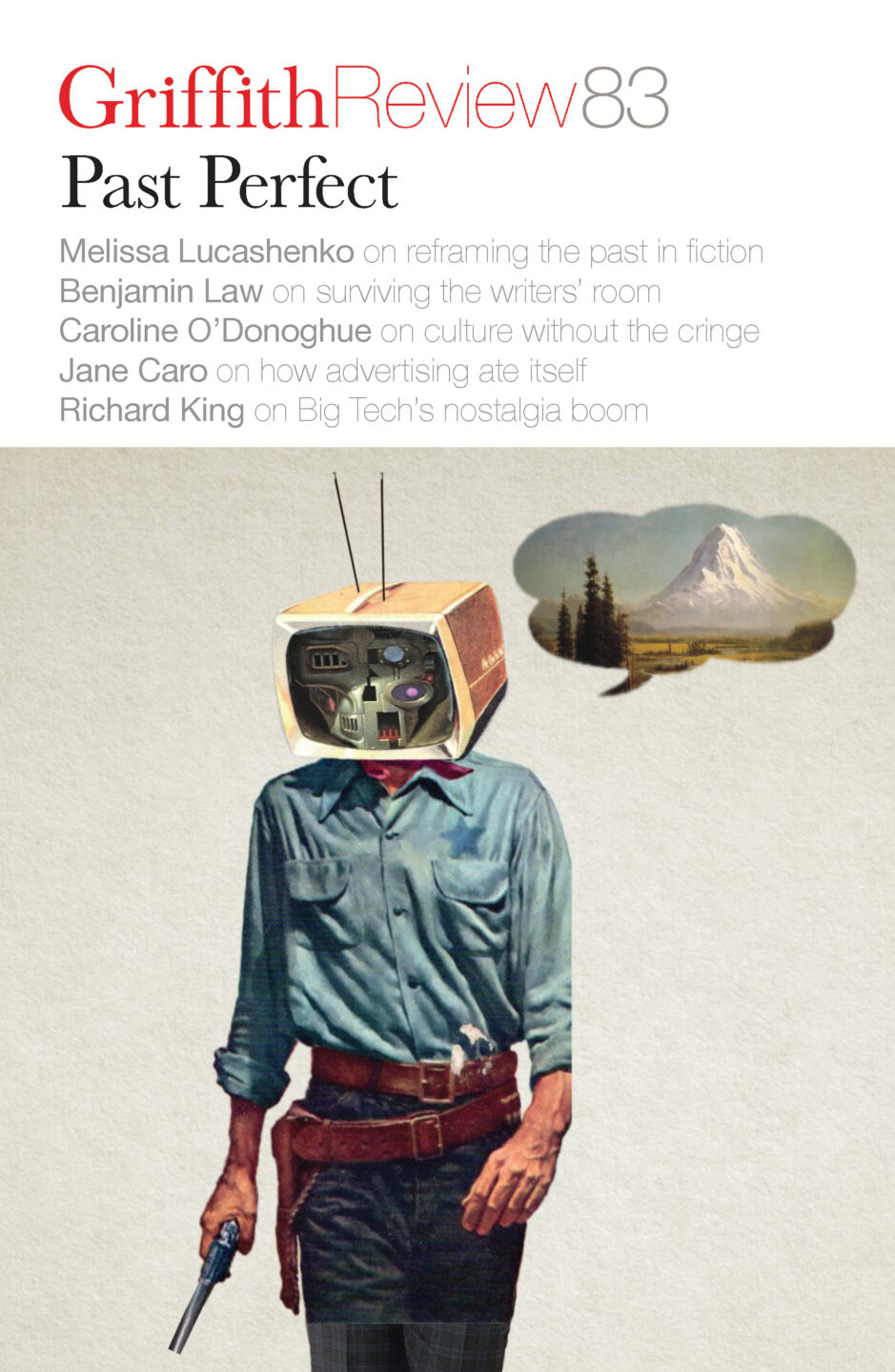Featured in

- Published 20240206
- ISBN: 978-1-922212-92-4
- Extent: 203pp
- Paperback, ePub, PDF, Kindle compatible


Already a subscriber? Sign in here
If you are an educator or student wishing to access content for study purposes please contact us at griffithreview@griffith.edu.au
Share article
About the author

Caroline O’Donoghue
Caroline O’Donoghue is a New York Times bestselling author and the host of the award-winning podcast Sentimental Garbage. She has written three novels for...
More from this edition

Exeunt
PoetryThe mirage of beer before their eyes. Barney wipes his feet upon the mat unaccustomed to such luxuries.

Nothing ever lasts
Non-fictionBut I hate thinking of myself as the diversity hire. As I said, I’ve worked in the industry for over a decade. ‘I belong in this room,’ I told myself. I’m not a token – despite being called that so many times in my career that I’ve lost count. I’ve earned my place.

From anchor to weapon
Non-fictionIn 1930s Germany, the slogan ‘blood and soil’ was most prominently promulgated by the Reich Ministry of Food and Agriculture, which positioned itself not merely as an administrator but a kind of advocate-guardian of the soil and its workers. In 1930, Adolf Hitler recruited Richard Walther Darré, then a leading blood and soil theorist, to the Nazi Party. On seizing power in 1933, Hitler appointed Darré Reichsminister of Agriculture, a role he occupied until 1942. Recently, for reasons that are unclear but politically alarming, Darré’s works on blood and soil have been translated and republished in English to some fanfare.